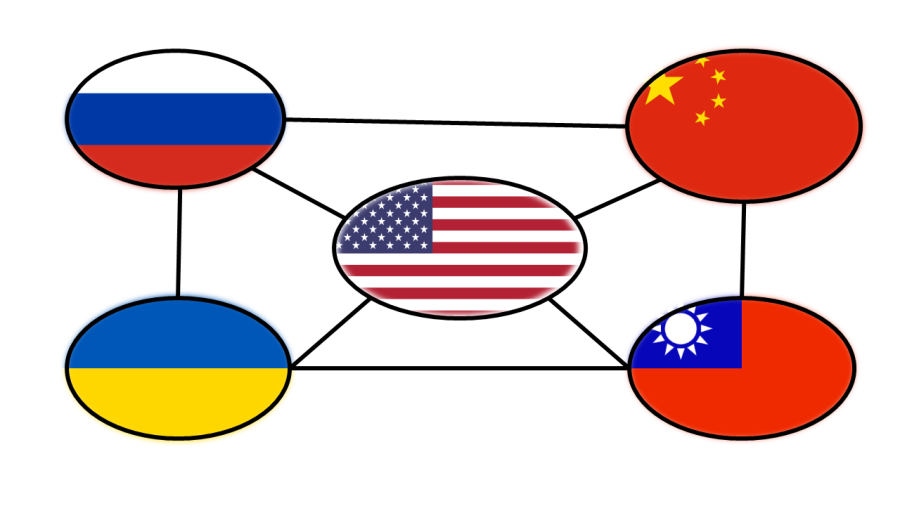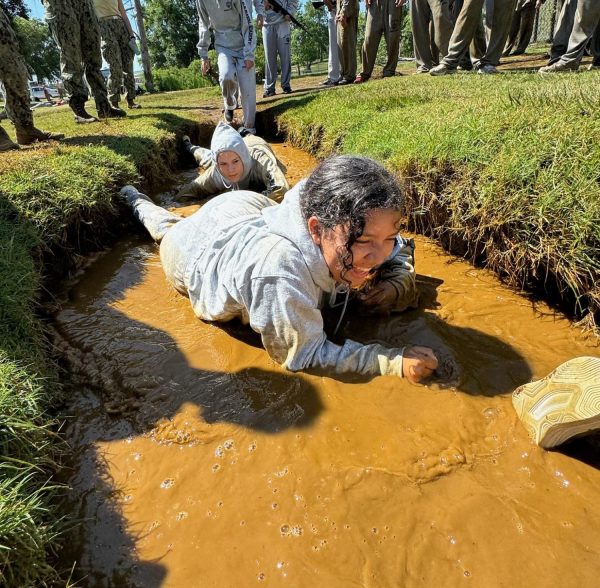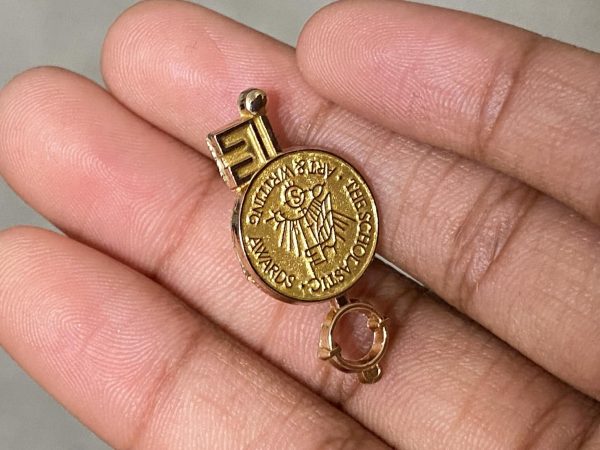Two Stories: Russia and Ukraine, China and Taiwan
Atahan Koksoy, with photos by unknown authors.
The relationships between the United States, Russia, Ukraine, China, and Taiwan are extremely nuanced and have become more fragile after the Russia-Ukraine conflict.
In the days when all eyes seem fixed on Ukraine, the similarities to the developing crisis between Taiwan and China cannot be ignored.
In the past year, the number of Chinese incursions into Taiwanese airspace has skyrocketed. China has never acknowledged the independence of Taiwan under its “One China” policy, seeing itself as the only legitimate Chinese government and Taiwan as part of it.
In Ukraine, a major invasion by Russia has happened, sparked by Ukraine’s improving relations with the West and its desire to become a NATO member. Like China with Taiwan, Russia has never seen Ukraine as a separate state, and contested its claims to certain territories, like the Donbass region.
China is currently allied with Russia economically and politically, although it has stayed neutral in the Russo-Ukrainian conflict. China, in recent history, has largely stayed out of major conflicts, and expanded economically in East Asia and beyond. However, tensions with Taiwan have intensified.
The United States has maintained friendly relations with both Taiwan and Ukraine, though it has not recognized Taiwan as an independent state. It has also maintained economic ties with China, though in recent years, the relationship has become more complex. However, the relationship between the US and Russia has deteriorated, especially after the Ukraine crisis and ultimately the invasion of Taiwan.
When the invasion of Ukraine started, there were doubts other powers, like the United States, would intervene. There were even fears that the direct intervention of the United States on behalf of Ukraine would lead to the Third World War. The United States has not intervened directly. However, it has imposed a major sanctions package on Russia, and other NATO powers have supplied weapons and money to the Ukrainian Armed Forces.
Russia is the world’s second largest producer of crude oil, and many European nations depend on it for oil and gas. Despite this connection, most European nations, including Germany, have supported the Ukrainian Armed Forces. The United States also import imports Russian crude oil, though in much smaller amounts. It has decided that it will ban these imports as additional sanctions against Russia.
Like they depend on Russian oil, many countries in Europe and the Americas also depend on Chinese-made products, including medical supplies. China is currently the largest goods trading partner of the United States, and this makes the relationship much more complex than with Russia. In 2020, 18.6 percent of all US imports were from China.
Taiwan has been closely monitoring the situation in Ukraine and has activated its defense systems against a possible Chinese attack. Because TSMC, the world’s largest semiconductor manufacturer, is located in Taiwan, the United States would feel more compelled to intervene directly. TSMC supplies microchips to many companies around the world, including Apple. Although China’s military has grown in size and strength since then, the US Armed Forces is still technologically superior, and China is likely not going to invade Taiwan anytime soon. Additionally, Taiwan is a populated island with its own air defense systems, and the United States strengthened Taiwan’s military over the years by supplying weapons and equipment.
TSMC has been viewing the situation in Ukraine as well, and it has stopped exporting microchips to Russia. This may cause additional tensions between Taiwan and China, but an invasion is not likely to happen soon, not when the situation in Ukraine is so sensitive and Russia’s actions have been met with sanctions from across the globe, including major firms, like Netflix, Boeing, FedEx, and Nike, ending operations in Russia.
Your donation will support the student journalists of Carnegie Vanguard High School. Your contribution will allow us to cover our annual website hosting costs and fund field trips, competition fees, and equipment. We appreciate your support!

I love reading, learning, drawing cartoons, watching films, and discussing art, history, politics, and business. I also collect historical artifacts,...








Tran • Apr 5, 2022 at 11:34 am
US is not going to intervene because of a chip company. Stating this, shows your naïveté.
Jessica Lin • Mar 8, 2022 at 2:14 pm
This was a really descriptive article about an issue that I needed to learn more about. As someone who is Taiwanese, I appreciated the in-depth information.
Abigail Nunez • Mar 8, 2022 at 1:56 pm
I think that the situation at the moment is very sensitive, and it is great that we are keeping students informed about the situation. I really liked the story and I like the simplicity you used to explain the situation , because for some people it might be harder to understand.
Brooke Ferrell • Mar 8, 2022 at 1:51 pm
I really enjoyed all of the research in this article! I hadn’t thought to compare these situations